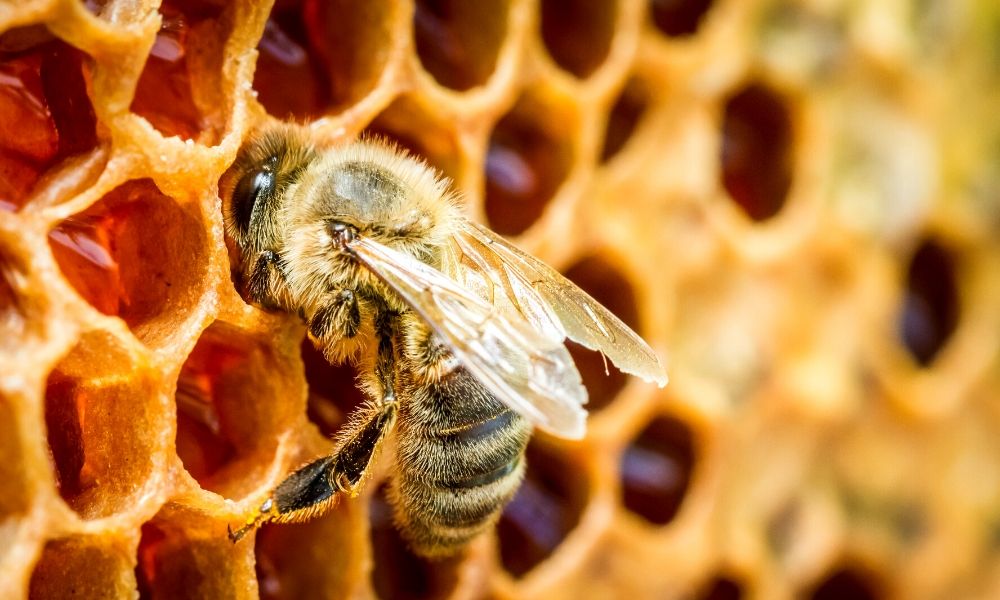Different Ways to Protect Honeybees

Certainly, you have heard about the bee epidemic we are facing in the world today, and that we need to save the bees. But, do you understand the full ramifications of bees dying off? I, Matthew Davies, am going to make sure that everyone understands why it is vitally important that we save honeybees, and how you can help the cause.
Bees are an essential piece of the environment and a key component to the communities of this great nation. Bees are industrious little workers that benefit not only their colonies but the local communities in which they live. Without bees flying from plant to plant pollinating them, we would have a fruit and vegetable shortage that science could not keep up with.
Below, you will find several ways that you can help promote the existence of bees in your neighborhood and the world as a whole. Possessing this knowledge will allow you to pass on your learnings to others to help everyone understand why bees play an essential part of human existence.
Keep Bee-Friendly Plants
Let’s assume you cannot tend to a beehive. Perhaps you’re allergic or simply short on time. That does not mean that you can’t do something to help. A simple way to help maintain the bee population is to plant a few bee-friendly plants in and around your garden. Honeybees need an abundance of plant life to sustain their hives. The pollen found in flowers (all plants go through a ‘flowering’ process) is rich in protein and is used to feed larvae.
Use the extra space on your property to start a garden of plants native to your area that are rich in pollen. If you live in an apartment and cannot start a garden, a few potted plants on your balcony will do the trick. Remember, it is not the number of plants you have; every little bit helps. Before you plant just any flower, make sure to do your research. Some plants are perfect for attracting bees, and others are not.
If all of this sounds like too much money or work than you can afford to spare, there is one final thing you can do. When you are tending to your lawn or existing garden, let the weeds grow. Wildflowers that many classify as weeds, including dandelions and clover, provide an important food source for bees. If you choose to remove the weeds, let them bloom first and pull them before they go to seed.
Support Your Local Beekeepers
Every year, hundreds of thousands of people search for a non-profit to give money to. Similarly, you can consider donating some money or supplies to your local Beekeeping society. Beekeepers and beekeeping societies are making every effort to ensure the survival of bees. At times they are low on funds and can only save a few. With your generous donation, they will be able to save a few more.
If you have more time than money, consider volunteering to help. Most beekeepers will be happy to have a few extra hands during the busiest parts of the season. They spend countless hours moving hives and preparing them for different seasons. Who knows, you may find a new hobby that you never knew you would like.
Avoid Pesticides
No one wants to have pests on their plants. They resort to using pesticides to remove them. However, using pesticides can be lethal to bees. Even pesticides that are labeled “organic” can harm a bee. Consider talking to your local beekeeper and trying a natural deterrent for the pests in your garden in lieu of chemical pesticides.
As a side note, if you choose to take the option of planting flowers around your garden, make sure they were not pre-treated with pesticides. Since the nursery doesn’t want to sell people plants that are infested with pests, they usually treat the plants on their property. Avoid planting these in your garden at all costs.
Water
All living things need water and bees are no different. They work extra hard during the hottest parts of the year to fertilize plants, enabling us to have plenty of fruits and vegetables to eat. If they are unable to locate a source of water, they can become dehydrated and die. If you find a bee on your property that is on the ground, chances are it is severely dehydrated. Carefully try to place some water in front of the bee and let it have a drink. Remember, bees sting out of instinct. Protect yourself from stings before attempting to aid a bee in need.
Spread Awareness
Just by reading this blog, you probably have more knowledge about how to save bees than the average person. It is now your responsibility to get out there and spread the word. Start by letting your neighbors know you are interested in planting bee-friendly plants around your house or apartment complex. You can then move on to the city as a whole. Periodically, city councils will have nights were the citizens in the city can approach the council and propose projects. Do a little research on the benefits that other cities have reaped from promoting the bee population and present it to the board. With luck, you will have a city you can be proud of.
Conclusion
With everything going on in the world today, it can be easy to overlook the bee population, but their numbers continue to decline. If we don’t do something about it soon, we could be in for a terrible shortage of food. I, Matthew Davies, hope you take the knowledge that you learned from this blog and make a change in your life and in your community. Once you have done that, it will be time to pursued others in making a change in their lives and communities. It doesn’t require a lot of time or money, but it can be gratifying to know you are making a difference in the world.